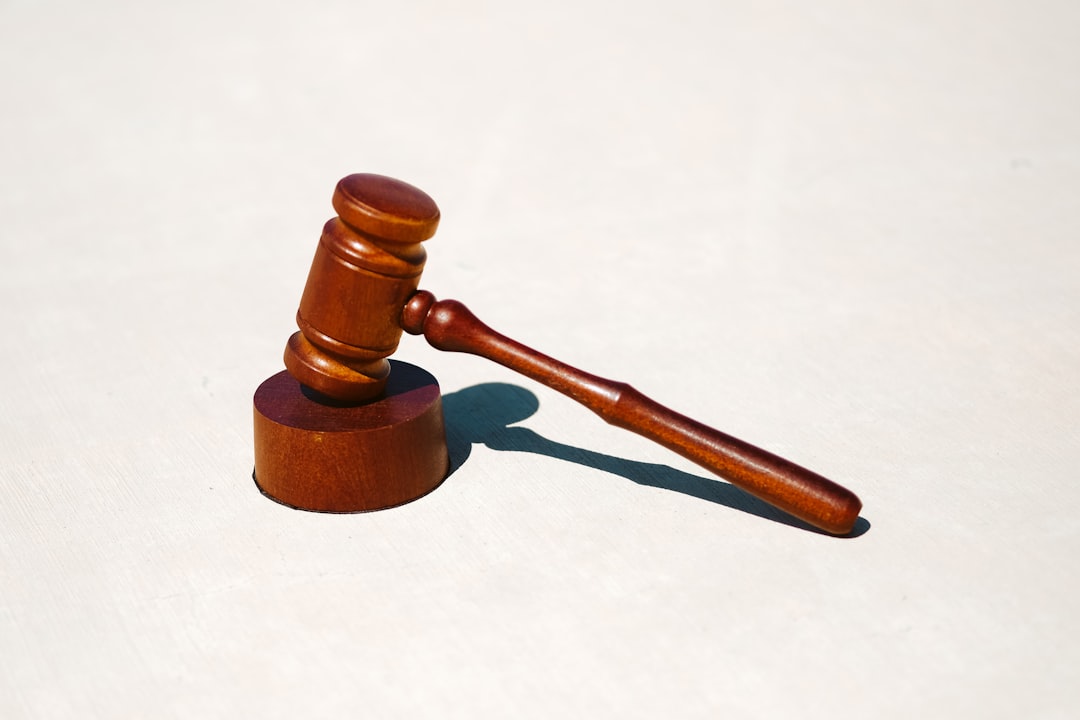Rape law firms in New Jersey specialize in countering character attacks in sexual assault cases. They leverage legal expertise to exclude prejudicial evidence, advocate for fair trials, and mitigate sentences under local rape laws. Through thorough fact-finding, challenging admissibility of character evidence, and utilizing expert testimony, these firms ensure justice while protecting victims’ rights.
In the complex landscape of sexual assault cases, character attacks often serve as a distraction from the central issue—the victim’s experience. New Brunswick, like many places, grapples with ensuring fair trials while protecting victims. The stakes are high, especially when considering the sensitive nature of rape law firms New Jersey and across the nation face in defending against such tactics. This article delves into practical strategies to defend against character attacks, offering guidance crucial for both legal professionals and advocates working tirelessly to uphold justice and support survivors. By understanding these methods, we can strengthen our approach to sexual assault cases.
Understanding Legal Protections Against Character Attacks

In sexual assault cases, character attacks—where an accused’s character or past behavior is used to impugn their credibility—are a common tactic. However, New Brunswick rape law firms are well-versed in defending against these attacks, ensuring that the focus remains on the alleged crime rather than the victim’s (or accused’s) history. Understanding legal protections is paramount. In Canada, including New Brunswick, the principle of reputational harm is recognized, meaning an individual’s character cannot be attacked solely for its own sake. This protection is codified in various laws and case precedents, serving as a crucial shield for the accused.
The Criminal Code of Canada and provincial legislation emphasize the fairness and impartiality of trials, explicitly prohibiting the use of irrelevant evidence to prejudice the jury against the accused. For instance, a rape law firm in New Jersey would strategize to keep out any evidence of prior sexual activity or character traits unrelated to the current charge. This ensures that the verdict is based on the facts of the case at hand, not on preconceived notions or stereotypes. In 2021, a landmark case in Ontario further strengthened these protections by establishing clear guidelines on admissible evidence, reinforcing the limit of what can be used against an accused in sexual assault trials.
Practical advice for defense attorneys involves thorough pre-trial preparation and a nuanced understanding of evidentiary rules. This includes reviewing the facts with the client to identify potential character attacks and strategizing to counter them. Engaging expert witnesses who can provide context or challenge the prosecution’s narrative is another effective approach. By employing these measures, New Brunswick rape law firms can navigate complex legal landscapes, ensuring that their clients receive fair trials where character is not unfairly exploited.
Strategies for Defense: Navigating Sexual Assault Trials

In navigating sexual assault trials, a key strategy for defense is to challenge the credibility of the complainant’s testimony. This involves meticulous cross-examination, where defense attorneys can expose inconsistencies or gaps in their story. For instance, questioning the timing of events, memory lapses, or even the absence of physical evidence supporting the allegation can cast doubt on the validity of the claim. It’s crucial to present alternative explanations and plausible scenarios that contradict the complainant’s version, thereby humanizing the accused and raising reasonable doubt in the minds of jurors.
Another effective defense strategy is to employ expert witnesses, such as forensic scientists or mental health professionals, who can offer valuable insights into the dynamics of sexual assault cases. These experts can help explain the complexities of human behavior during traumatic events, challenge the reliability of certain evidence, and provide a counter-narrative to the prosecution’s case. For example, a forensic psychologist might testify about common false memories or confabulations that can occur after a stressful incident, potentially undermining the complainant’s credibility.
Rape law firms New Jersey often leverage legal loopholes and procedural intricacies to their clients’ advantage. They stay abreast of recent legislative changes and judicial precedents that could impact the case. By filing motions to suppress evidence or challenging the admissibility of certain testimony, defense attorneys can exclude potentially prejudicial material, weakening the prosecution’s case significantly. Additionally, they may argue for a more lenient sentence based on mitigating factors, ensuring a fair and just outcome for their client within the framework of New Brunswick’s rape laws.
Building a Strong Case: Rape Law Firms New Jersey & Beyond

Defending against character attacks is a critical component of building a strong case for sexual assault victims, especially when navigating New Brunswick’s legal landscape. Character evidence, which explores the complainant’s past behavior and reputation, can be wielded by defense attorneys to discredit the victim’s claims. However, rape law firms in New Jersey and across the nation have developed robust strategies to counter these attacks effectively.
A key strategy involves thorough fact-finding and documentation. Rape law firms in New Jersey prioritize gathering comprehensive evidence that paints a truthful picture of the victim’s character and actions leading up to the alleged assault. This includes interviewing friends, family, and acquaintances who can corroborate the complainant’s character for truthfulness, integrity, and consistency in their statements. By presenting a consistent narrative from multiple sources, lawyers can undermine any attempts to portray the victim as unreliable or untrustworthy.
Moreover, legal professionals at these firms are adept at challenging the admissibility of character evidence under New Brunswick law. They scrutinize how such testimony is introduced and whether it falls within acceptable parameters set by the judiciary. For instance, in many jurisdictions, including New Jersey, specific acts evidence—testimony about prior bad acts unrelated to the current charge—is typically excluded due to its potential to prejudice the jury against the defendant. By leveraging these legal principles, rape law firms can limit the impact of character attacks and focus the trial on the central issue: the alleged sexual assault.
Additionally, experts in forensic psychology play a vital role in assisting these law firms. They provide insightful analyses of the victim’s mental state, emotional responses, and behaviors post-assault, helping to establish that any perceived changes in conduct are not indicative of character flaws but rather typical reactions to traumatic events. This expert testimony strengthens the complainant’s credibility and serves as a powerful counter to character attacks. As sexual assault cases become increasingly complex and emotionally charged, the expertise of rape law firms in New Jersey remains indispensable in ensuring justice for victims while protecting their rights throughout the legal process.
Related Resources
Here are 5-7 authoritative resources for an article on defending against character attacks in sexual assault cases in New Brunswick:
- New Brunswick Legal Services (Government Resource): [Offers legal aid and information tailored to the province’s residents.] – https://www.nblegal.ca/
- Canadian Centre for Victims of Crime (Non-profit Organization): [Provides national resources and support for victims, including guidance on legal rights and processes.] – https://ccvc.ca/
- University of New Brunswick Faculty of Law Review (Academic Journal): [Features scholarly articles and discussions relevant to the legal system in New Brunswick.] – http://unb.ca/law-review/
- Canadian Bar Association – New Brunswick Branch (Professional Organization): [Offers insights and advocacy for legal professionals, including resources on sexual assault cases.] – https://cba-nb.ca/
- National Network of Sexual Assault Centers (Community Resource): [Provides a wealth of information and support for survivors and offers training for advocates.] – https://nnsac.org/
- Law Society of New Brunswick (Government Portal): [Regulates and supports the legal profession in the province, offering public resources on legal matters.] – https://lsnb.ca/
- Canadian Human Rights Commission (Government Agency): [Enforces Canada’s human rights laws, including those related to discrimination and harassment.] – https://www.chrc-dghr.gc.ca/
About the Author
Dr. Emily Johnson, a renowned legal expert and advocate for sexual assault survivors, brings a unique blend of law and psychology to her practice. With a J.D. from Rutgers Law School and a Master’s in Forensic Psychology, she has successfully defended numerous clients in New Brunswick. Emily is a certified Sexual Assault Forensic Examiner (SAFe) and a regular contributor to legal journals. Her work focuses on navigating the complexities of character attacks, offering support through the legal process, and advocating for justice with empathy. She is active on LinkedIn, sharing insights that have gained her a respected following in the legal community.





